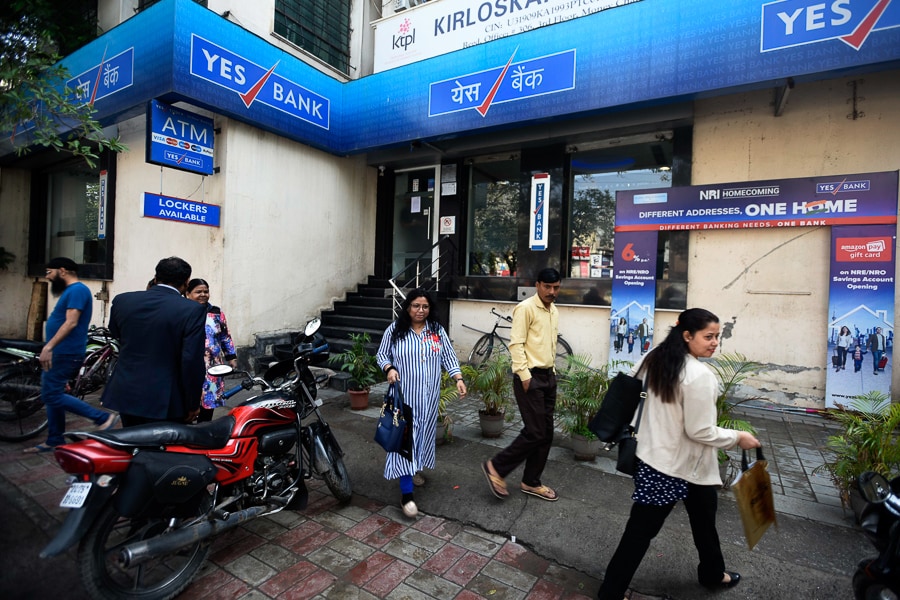
'Yes Bank's ATMs are full of cash, deposits safe': administrator Prashant Kumar
Ahead of the moratorium to be lifted, the bank's financial health remains a big question mark, even as Yes Bank's share price has jumped 260 percent since March 6
 Image: Biplov Bhuyan/Hindustan Times via Getty Images
Image: Biplov Bhuyan/Hindustan Times via Getty ImagesA day ahead of the lifting of the moratorium at troubled private lender Yes Bank, its administrator, Prashant Kumar, disclosed that only one-third of its total customers withdrew Rs 50,000 (the limit stipulated) during the moratorium period.
The true test for Yes Bank will be faced tomorrow when the moratorium lifts and normal banking activity commences. It is feared that retail depositors will start to withdraw their deposits from the bank and park it into safer, larger banks.
To prevent a collapse of the bank, the government this month approved the RBI’s Yes Bank reconstruction scheme, through which the State Bank of India, along with HDFC, ICICI Bank, Axis Bank, Kotak Mahindra Bank, Bandhan Bank, Federal Bank and IDFC First Bank will infuse a combined Rs 10,000 crore capital into the bank.
SBI’s board has approved a plan to invest Rs 7,250 crore into Yes Bank, but as part of the first phase it will invest only Rs 6,050 crore.
To further infuse confidence in the reconstructed bank, SBI chairman Rajnish Kumar said, “We are free to sell [some of] our shares but I assure that we will not sell a single share in the three-year [lock-in] period.” The reconstruction scheme says that 75 percent of all shares, held by existing shareholders and even new investors, will be locked in for three years.
In just 11 trading days, Yes Bank share price has jumped 260 percent to Rs 58.6 at the BSE on Tuesday, from Rs 16.2 on March 6, when the moratorium was announced.










